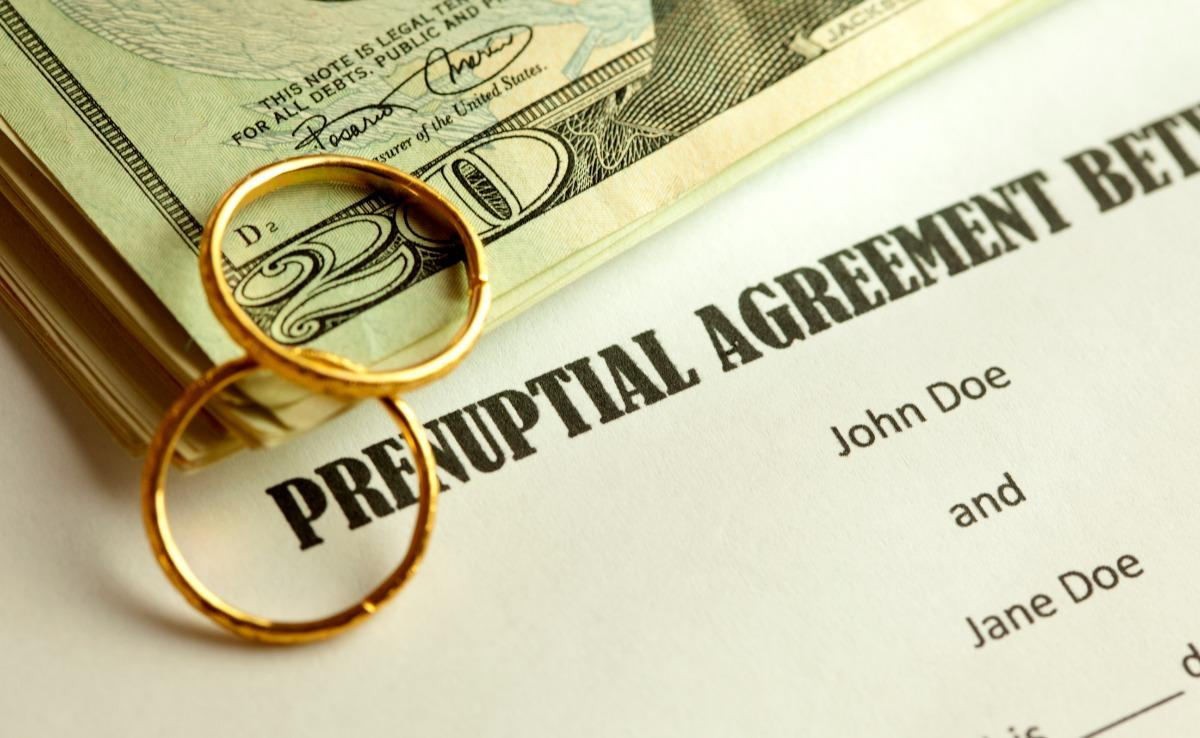
- posted: May 25, 2021
A pre-nuptial agreement—also known as a “pre-nup” or “ante-nuptial agreement”—is a common tool to protect income and assets. The agreement becomes enforceable upon marriage and applied in the event of a divorce. A pre-nup cannot arrange for custody or dictate an amount of child support to be paid. This must be negotiated at the time of divorce in accordance with the laws and the best interests of the children. As parties are typically adversarial at the time of divorce, a pre-nup can be particularly valuable in limiting litigation and creating a more expedient divorce process.
A party intending to enter into a pre-nuptial agreement should understand that a Court will more likely than not uphold a fully-executed agreement entered into knowingly and voluntarily. Like any enforceable agreement, expect that you will be bound by the terms of your pre-nup.
Most people do not expect to get divorced when they marry. Nonetheless, many plan for it due to the high rate of divorce. Obviously, it is impossible to predict exactly where one’s life will be in the future with regard to children, income, property, assets and liabilities. However, what is possible is for a person to—at the pre-nup drafting stage—imagine what would be in their best property and financial interests if a divorce were to occur, taking into consideration the entirety of their current situation as well as that of the other party. What do you imagine your property and financial circumstance will be in five, ten, twenty years? If you agree in a pre-nup to receive $20,000.00 per year in alimony and you are the lower wage earner making $30,000.00/year while the other party earns $250,000.00/year, are you okay receiving $20,000.00 per year for 7 ½ years for example if in 15 years you file for divorce and you still earn $30,000.00 but the other party now earns $400,000.00? Or, alternatively, if you are the paying spouse do you want to guarantee a large sum in a pre-nup that may in the future be beyond your means? Do you have separate property that you want to protect from any claim of the other party in the event of a divorce?
Prior to entering into a pre-nup, a party should be fully informed of the other party’s financial position and property interests. Blindly entering into the agreement without taking precautionary measures can cause a Court to find the pre-nup unenforceable later down the road. If a spouse contests the enforceability of a pre-nup at the time of divorce, that party has the burden of proving that he or she executed the agreement involuntarily or the agreement was unconscionable at the time it was executed. As defined by New Jersey statute, a pre-nup is “unconscionable” if the party contesting the agreement was not provided with full and fair disclosure of the other party’s financial situation and did not have or reasonably could not have had an adequate knowledge of his or her financial situation, or the contesting party did not consult with independent legal counsel. The contesting party also must not have voluntarily and expressly waived the disclosure of the other party’s financial information or waived the opportunity to obtain the advice of independent counsel.
A party intending to enter into a pre-nup should consult with an experienced attorney to discuss his or her concerns in the event of a divorce. An agreement can then be drafted to address and resolve these concerns in accordance with the laws of New Jersey or your State at the time of execution.
On a side note, a pre-nup hopefully should not cause enormous turmoil and resentment right before the wedding. A reasonable and fair arrangement based on open and honest discussion is always best.
For consultation call Helfand & Associates at 973-539-1000, 0ur experienced matrimonial attorneys, handling all aspects of Family Law. Tanya N. Helfand, Esq. is a Certified Matrimonial Attorney, a Mediator and Panelist in the Morris and Essex County ESP Programs. The firm welcomes your questions and inquiries at [email protected]. We handle cases in Bergen, Essex, Morris, Hudson, Union, Somerset, Sussex and other New Jersey counties.
- Alimony (15)
- Bankruptcy (4)
- Business (3)
- Child Support (10)
- Children (19)
- Citizenship (1)
- Civil Litigation (3)
- Collections (2)
- Court Orders (3)
- Court Procedure (4)
- Court Rules (6)
- Credit Cards (2)
- Custody (12)
- Debt (5)
- Debt Collection (2)
- Divorce (67)
- DUI (3)
- DWI (3)
- Expungement (1)
- Family Law (38)
- Fathers Rights (2)
- Guardian (3)
- Judgments (1)
- Lawsuit (1)
- Litigation (2)
- Personal Representative (1)
- School (1)
- Special Needs Trust (1)
- Taxes (3)
- Trust (1)
- Worker's Compensation (3)


